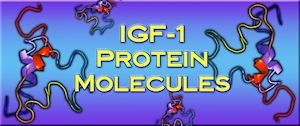Introduction
Testosterone replacement therapy (TRT) has become a pivotal treatment option for men experiencing hypogonadism, a condition characterized by abnormally low testosterone levels. As TRT gains popularity among American males seeking to mitigate symptoms such as fatigue, reduced libido, and muscle loss, it is crucial to examine its impact on liver function. This article delves into the hepatological implications of TRT, providing a comprehensive overview of current research and clinical findings.
The Role of Testosterone in Male Health
Testosterone is a vital hormone that plays a significant role in male physiology, influencing muscle mass, bone density, red blood cell production, and sexual function. As men age, testosterone levels naturally decline, leading some to consider TRT to restore their hormonal balance and improve quality of life. However, the decision to embark on TRT should be informed by a thorough understanding of its potential effects on liver health.
Understanding Liver Function and Its Importance
The liver is a critical organ responsible for numerous metabolic processes, including detoxification, protein synthesis, and hormone regulation. Any disruption in liver function can have serious health implications, making it essential to monitor the liver's response to TRT. Hepatologists and endocrinologists alike are keenly interested in how testosterone therapy might influence liver enzymes and overall liver health.
Clinical Studies on TRT and Liver Function
Recent clinical studies have investigated the relationship between TRT and liver function in American males. A notable study published in the Journal of Clinical Endocrinology & Metabolism found that while TRT can lead to mild elevations in liver enzymes such as alanine aminotransferase (ALT) and aspartate aminotransferase (AST), these changes are typically transient and resolve without intervention. The study emphasized the importance of regular monitoring to ensure liver health is maintained throughout TRT.
Another investigation, featured in Hepatology, explored the long-term effects of TRT on liver function. The research indicated that prolonged use of TRT did not significantly increase the risk of liver disease in men without pre-existing liver conditions. However, the study highlighted that individuals with underlying liver issues should approach TRT with caution and under close medical supervision.
Potential Risks and Considerations
While TRT can be beneficial, it is not without risks. Hepatotoxicity, or liver damage, is a concern with any hormonal therapy, particularly when using synthetic forms of testosterone. American males considering TRT should be aware of these potential risks and discuss them with their healthcare providers. Factors such as dosage, duration of therapy, and individual health history can influence the impact of TRT on liver function.
Monitoring and Management Strategies
To mitigate the risks associated with TRT, healthcare professionals recommend regular monitoring of liver function tests (LFTs) for men undergoing therapy. Baseline LFTs should be established before starting TRT, with follow-up tests conducted at regular intervals to track any changes. If liver enzyme levels rise significantly, adjustments to the TRT regimen or cessation of therapy may be necessary to protect liver health.
Conclusion
Testosterone replacement therapy offers significant benefits for American males suffering from hypogonadism, but its impact on liver function must be carefully considered. While current research suggests that TRT is generally safe for liver health, ongoing monitoring and a personalized approach to therapy are essential. By staying informed and working closely with healthcare providers, men can navigate TRT with confidence, ensuring both their hormonal and liver health are well-managed.
Contact Us For A Fast And Professional Response

- 0001) TRT's Impact on Mental Health in American Men: Benefits, Risks, and Holistic Approaches [Last Updated On: March 12th, 2025] [Originally Added On: March 12th, 2025]
- 0002) Testosterone Replacement Therapy: Benefits and Risks for Young American Men with Hypogonadism [Last Updated On: March 18th, 2025] [Originally Added On: March 18th, 2025]
- 0003) Optimizing Testosterone Replacement Therapy with Diet and Exercise: A Holistic Approach for American Men [Last Updated On: March 18th, 2025] [Originally Added On: March 18th, 2025]
- 0004) TRT Boosts Bone Health in American Males: Benefits and Considerations [Last Updated On: March 18th, 2025] [Originally Added On: March 18th, 2025]
- 0005) American Men's Experiences with Testosterone Replacement Therapy: Impacts and Insights [Last Updated On: March 18th, 2025] [Originally Added On: March 18th, 2025]
- 0006) Navigating Insurance Coverage for Testosterone Replacement Therapy: A Comprehensive Guide [Last Updated On: March 19th, 2025] [Originally Added On: March 19th, 2025]
- 0007) Testosterone Replacement Therapy: Dosage, Methods, and Risks for American Males [Last Updated On: March 19th, 2025] [Originally Added On: March 19th, 2025]
- 0008) Testosterone Replacement Therapy: Enhancing Male Health and Vitality in American Men [Last Updated On: March 19th, 2025] [Originally Added On: March 19th, 2025]
- 0009) TRT: Benefits, Risks, and Prostate Health Monitoring in American Men [Last Updated On: March 19th, 2025] [Originally Added On: March 19th, 2025]
- 0010) Future of TRT: Innovations, Personalization, and Accessibility in American Medicine [Last Updated On: March 20th, 2025] [Originally Added On: March 20th, 2025]
- 0011) Economic Impact of Testosterone Replacement Therapy on U.S. Healthcare System [Last Updated On: March 20th, 2025] [Originally Added On: March 20th, 2025]
- 0012) TRT and Holistic Health: Enhancing American Men's Wellness with Alternative Therapies [Last Updated On: March 21st, 2025] [Originally Added On: March 21st, 2025]
- 0013) TRT in American Men: Masculinity, Stigma, and Healthcare Dynamics [Last Updated On: March 21st, 2025] [Originally Added On: March 21st, 2025]
- 0014) TRT Enhances Sleep Quality in American Males with Low Testosterone [Last Updated On: March 21st, 2025] [Originally Added On: March 21st, 2025]
- 0015) Testosterone Replacement Therapy: Enhancing Mood in American Males [Last Updated On: March 22nd, 2025] [Originally Added On: March 22nd, 2025]
- 0016) TRT: Enhancing Weight Management in American Males Through Holistic Approach [Last Updated On: March 22nd, 2025] [Originally Added On: March 22nd, 2025]
- 0017) Hypogonadism and TRT: Benefits, Risks, and Lifestyle Impact on American Males [Last Updated On: March 23rd, 2025] [Originally Added On: March 23rd, 2025]
- 0018) TRT's Impact on Immune Function in American Men: Benefits and Risks [Last Updated On: March 23rd, 2025] [Originally Added On: March 23rd, 2025]
- 0019) TRT's Role in Managing Diabetes: Insights for American Men [Last Updated On: March 23rd, 2025] [Originally Added On: March 23rd, 2025]
- 0020) TRT Benefits for American Males: Enhancing Skin Health and Elasticity [Last Updated On: March 23rd, 2025] [Originally Added On: March 23rd, 2025]
- 0021) Managing Side Effects of Testosterone Replacement Therapy in American Males [Last Updated On: March 24th, 2025] [Originally Added On: March 24th, 2025]
- 0022) Testosterone Replacement Therapy: Benefits, Risks, and Management for Aging Males [Last Updated On: March 24th, 2025] [Originally Added On: March 24th, 2025]
- 0023) Testosterone Replacement Therapy: Enhancing Muscle Mass in American Men [Last Updated On: March 24th, 2025] [Originally Added On: March 24th, 2025]
- 0024) TRT's Potential to Enhance Cognitive Function in American Men: An Overview [Last Updated On: March 24th, 2025] [Originally Added On: March 24th, 2025]
- 0025) TRT: Benefits for American Males and Its Impact on Vision Health [Last Updated On: March 24th, 2025] [Originally Added On: March 24th, 2025]
- 0026) Testosterone Replacement Therapy: Monitoring, Adjusting, and Lifestyle for American Males [Last Updated On: March 24th, 2025] [Originally Added On: March 24th, 2025]
- 0027) Testosterone Replacement Therapy: Combating Fatigue in American Men [Last Updated On: March 24th, 2025] [Originally Added On: March 24th, 2025]
- 0028) TRT: Enhancing Emotional Well-being in American Men with Low Testosterone [Last Updated On: March 24th, 2025] [Originally Added On: March 24th, 2025]
- 0029) TRT's Impact on Cardiovascular Health in American Men: Benefits and Risks [Last Updated On: March 24th, 2025] [Originally Added On: March 24th, 2025]
- 0030) TRT's Impact on Male Fertility: Risks, Strategies, and Lifestyle Considerations [Last Updated On: March 24th, 2025] [Originally Added On: March 24th, 2025]
- 0031) TRT and Hair Loss: Understanding Risks and Management Strategies for American Men [Last Updated On: March 25th, 2025] [Originally Added On: March 25th, 2025]
- 0032) TRT's Impact on Digestive Health in American Men: A Comprehensive Overview [Last Updated On: March 25th, 2025] [Originally Added On: March 25th, 2025]
- 0033) TRT Benefits for Joint Health in American Males: A Comprehensive Overview [Last Updated On: March 25th, 2025] [Originally Added On: March 25th, 2025]
- 0034) TRT Enhances Injury Recovery in American Males: Benefits and Considerations [Last Updated On: March 25th, 2025] [Originally Added On: March 25th, 2025]
- 0035) Testosterone Replacement Therapy: Benefits, Risks, and Management for American Men [Last Updated On: March 25th, 2025] [Originally Added On: March 25th, 2025]
- 0036) TRT Enhances Cognitive Function and Mental Clarity in American Men [Last Updated On: March 26th, 2025] [Originally Added On: March 26th, 2025]
- 0037) TRT: A Promising Approach to Managing Chronic Pain in American Males [Last Updated On: March 26th, 2025] [Originally Added On: March 26th, 2025]
- 0038) Testosterone Replacement Therapy: Benefits, Risks, and Latest Research for American Men [Last Updated On: March 26th, 2025] [Originally Added On: March 26th, 2025]
- 0039) Testosterone Replacement Therapy: Benefits, Risks, and Management for American Men [Last Updated On: March 26th, 2025] [Originally Added On: March 26th, 2025]
- 0040) Testosterone Replacement Therapy: Enhancing Stamina in American Males [Last Updated On: March 26th, 2025] [Originally Added On: March 26th, 2025]
- 0041) TRT's Impact on Liver Health: Monitoring and Managing Risks [Last Updated On: March 26th, 2025] [Originally Added On: March 26th, 2025]
- 0042) Testosterone Replacement Therapy: Costs, Benefits, and Accessibility for American Men [Last Updated On: March 27th, 2025] [Originally Added On: March 27th, 2025]
- 0043) Testosterone Replacement Therapy: A Promising Treatment for Depression in American Males [Last Updated On: March 27th, 2025] [Originally Added On: March 27th, 2025]
- 0044) TRT's Potential Benefits for Respiratory Health in American Men: A Comprehensive Overview [Last Updated On: March 27th, 2025] [Originally Added On: March 27th, 2025]
- 0045) TRT: A Solution for Low Libido in American Males - Benefits, Safety, and Future [Last Updated On: March 27th, 2025] [Originally Added On: March 27th, 2025]
- 0046) TRT and Blood Pressure: Monitoring and Management Strategies for American Men [Last Updated On: March 28th, 2025] [Originally Added On: March 28th, 2025]
- 0047) Maximizing TRT Benefits: Diet, Exercise, Sleep, and Stress Management for American Males [Last Updated On: March 29th, 2025] [Originally Added On: March 29th, 2025]
- 0048) TRT: Managing Stress and Enhancing Well-being in American Males [Last Updated On: March 29th, 2025] [Originally Added On: March 29th, 2025]
- 0049) TRT's Impact on Kidney Function: Benefits and Risks for American Males [Last Updated On: March 29th, 2025] [Originally Added On: March 29th, 2025]
- 0050) Testosterone Replacement Therapy: Enhancing Confidence and Well-being in American Males [Last Updated On: March 30th, 2025] [Originally Added On: March 30th, 2025]
- 0051) Choosing the Right TRT Clinic: Key Factors for American Males [Last Updated On: March 30th, 2025] [Originally Added On: March 30th, 2025]
- 0052) Testosterone Replacement Therapy: Side Effects and Risks for American Men [Last Updated On: March 31st, 2025] [Originally Added On: March 31st, 2025]
- 0053) TRT's Complex Effects on Blood Sugar in American Men: A Comprehensive Analysis [Last Updated On: April 1st, 2025] [Originally Added On: April 1st, 2025]
- 0054) TRT's Impact on Cholesterol: Insights for American Males on Therapy [Last Updated On: April 1st, 2025] [Originally Added On: April 1st, 2025]
- 0055) TRT's Impact on Thyroid Function: Essential Insights for American Men [Last Updated On: April 4th, 2025] [Originally Added On: April 4th, 2025]
- 0056) Testosterone Replacement Therapy: Enhancing Health and Vitality in American Males [Last Updated On: April 5th, 2025] [Originally Added On: April 5th, 2025]
- 0057) Exploring TRT: Benefits, Risks, and Ethics for American Male Athletes [Last Updated On: April 8th, 2025] [Originally Added On: April 8th, 2025]
- 0058) Maximizing Health: Integrating TRT with Lifestyle and Pharmacological Therapies for American Males [Last Updated On: April 8th, 2025] [Originally Added On: April 8th, 2025]
- 0059) Understanding Allergic Reactions in Testosterone Replacement Therapy: Risks and Management [Last Updated On: April 9th, 2025] [Originally Added On: April 9th, 2025]
- 0060) TRT's Impact on Dental Health: Insights for American Men [Last Updated On: April 9th, 2025] [Originally Added On: April 9th, 2025]
- 0061) TRT and Hearing Health: Considerations for American Males [Last Updated On: April 9th, 2025] [Originally Added On: April 9th, 2025]
- 0062) TRT: Boosting Social Confidence and Relationships in American Males [Last Updated On: April 9th, 2025] [Originally Added On: April 9th, 2025]
- 0063) Understanding Testosterone Replacement Therapy: Interpreting Lab Results for American Men [Last Updated On: April 10th, 2025] [Originally Added On: April 10th, 2025]
- 0064) Traveling with Testosterone Replacement Therapy: A Comprehensive Guide for American Men [Last Updated On: April 10th, 2025] [Originally Added On: April 10th, 2025]
- 0065) TRT Benefits for American Men: Enhancing Nail Health and Overall Vitality [Last Updated On: April 10th, 2025] [Originally Added On: April 10th, 2025]
- 0066) TRT Benefits for Eye Health in American Men: Dry Eye, AMD, and More [Last Updated On: April 11th, 2025] [Originally Added On: April 11th, 2025]
- 0067) Legal Framework and Considerations for Testosterone Replacement Therapy in the U.S. [Last Updated On: April 12th, 2025] [Originally Added On: April 12th, 2025]
- 0068) TRT's Impact on American Men's Reproductive Health: Fertility and Sperm Production Effects [Last Updated On: April 12th, 2025] [Originally Added On: April 12th, 2025]
- 0069) Testosterone Replacement Therapy: Social Implications for American Males [Last Updated On: April 16th, 2025] [Originally Added On: April 16th, 2025]
- 0070) TRT's Impact on Chest Health: Benefits, Risks, and Management in American Men [Last Updated On: April 16th, 2025] [Originally Added On: April 16th, 2025]
- 0071) Testosterone Replacement Therapy: Psychological Impacts and Support for American Men [Last Updated On: April 16th, 2025] [Originally Added On: April 16th, 2025]
- 0072) TRT's Impact on Neck Health: Benefits and Risks for American Men [Last Updated On: April 17th, 2025] [Originally Added On: April 17th, 2025]
- 0073) TRT's Impact on Cognitive Function and Artistic Expression in American Males [Last Updated On: April 17th, 2025] [Originally Added On: April 17th, 2025]
- 0074) TRT Enhances Foot Health in American Males: Muscle, Bone, and Nerve Benefits [Last Updated On: April 17th, 2025] [Originally Added On: April 17th, 2025]
- 0075) TRT's Impact on Hand Health: Benefits, Risks, and Management for American Men [Last Updated On: April 18th, 2025] [Originally Added On: April 18th, 2025]
- 0076) Ethical Challenges in Testosterone Replacement Therapy: Consent, Access, and Misuse [Last Updated On: April 18th, 2025] [Originally Added On: April 18th, 2025]
- 0077) TRT: Boosting Work Performance in American Males with Low Testosterone [Last Updated On: April 18th, 2025] [Originally Added On: April 18th, 2025]
- 0078) TRT: Enhancing Back Health in American Males Through Testosterone Therapy [Last Updated On: April 20th, 2025] [Originally Added On: April 20th, 2025]
- 0079) Testosterone Replacement Therapy: Health Benefits vs. Environmental Impact in the U.S. [Last Updated On: April 21st, 2025] [Originally Added On: April 21st, 2025]
- 0080) TRT's Impact on Abdominal Health: Benefits, Risks, and Considerations for American Men [Last Updated On: April 22nd, 2025] [Originally Added On: April 22nd, 2025]
















